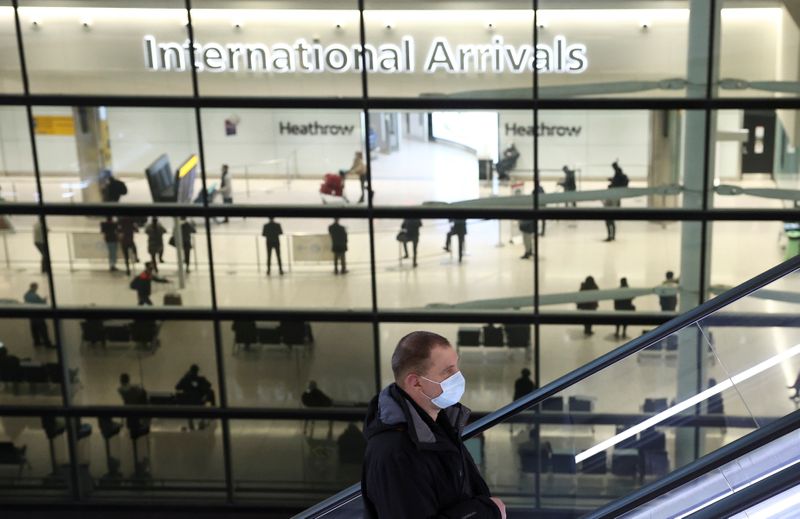LONDON (Reuters) – Digital health checks will be vital to a recovery in foreign travel from the COVID-19 pandemic, Britain’s Heathrow airport said on Wednesday, after a collapse in passenger numbers saw it plunge to a 2 billion pound ($2.8 billion) loss last year.
The UK government said on Monday trips abroad could restart in mid-May as its vaccination campaign kicks in, sparking a surge in holiday bookings.
It is also looking into a digital health passport or app to help ease restrictions, while conceding the benefits have to be weighed against potential risks to civil liberties.
But Heathrow chief executive John Holland-Kaye said digital technology, and international agreements, would be vital to reviving a travel industry on its knees.
“It’s absolutely critical and that’s one of the main things that government needs to work on,” he said, when asked about a digital health app.
At present, paper checks on COVID-19 test results and passenger locator forms take 20 minutes per traveller at Heathrow, making travel near impossible should passenger numbers rise from current low levels.
Britain’s biggest airport said it was “very likely” people would be able to go on their summer holidays, but expects passenger numbers will take time to recover.
The airport, west of London, is forecasting 25 million passengers in the second half of the year, meaning it would be operating at about 50% capacity.
Heathrow, owned by Spain’s Ferrovial, the Qatar Investment Authority, China Investment Corp and others, last year lost its title as Europe’s busiest airport to Paris after its flight schedules shrank more than those of its rivals.
Passenger numbers plunged 73% to 22 million people last year, with half of those travelling during January and February, before the pandemic shut down global travel in March.
Heathrow said it had 3.9 billion pounds of liquidity, giving it sufficient resources to keep going with low levels of traffic until 2023, despite the 2 billion loss before tax for 2020.
The airport urged the government to provide business tax breaks for big airports, something only available to smaller airports so far, and to extend the furlough job support scheme to help it financially before the recovery takes off.
(Reporting by Sarah Young. Editing by James Davey and Mark Potter)






















